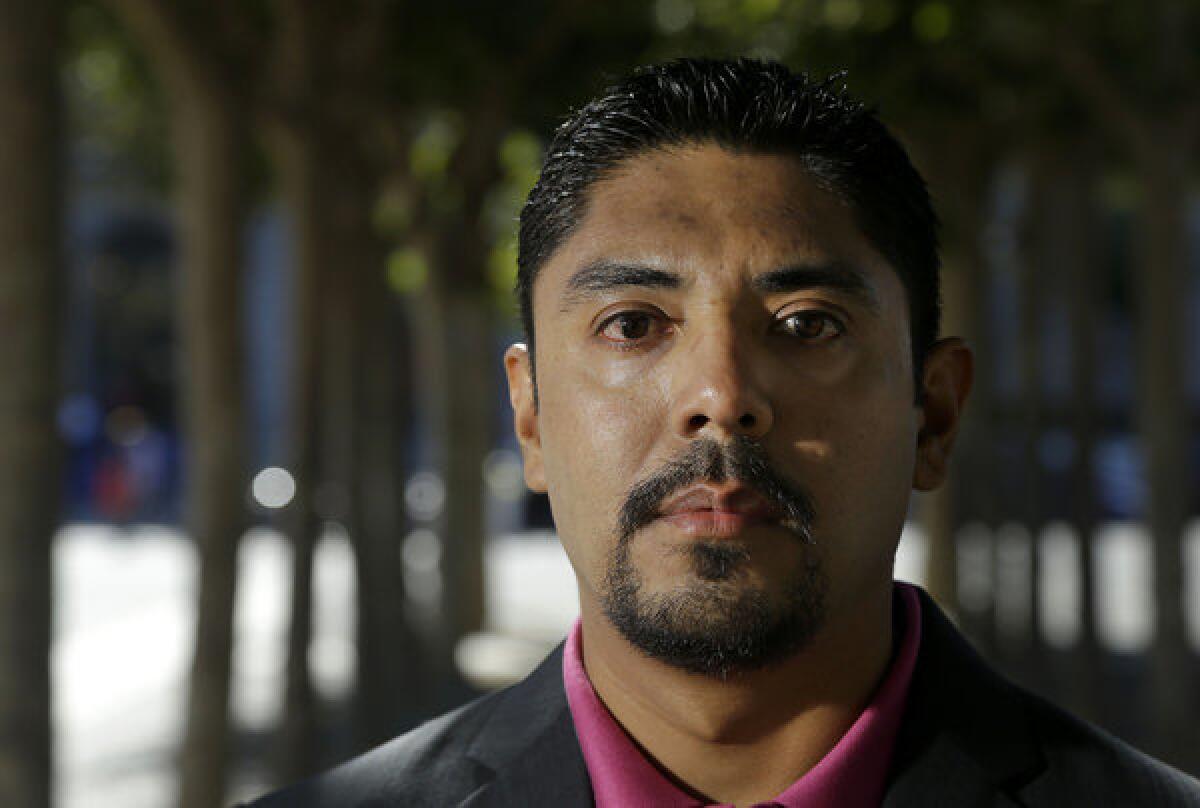Sergio Garcia will practice law, and he will make a killing

Sergio C. Garcia, the 36-year-old Chico man whose struggle to earn a license to practice law was the subject of a California Supreme Court hearing this week is not just an aspiring attorney. He is also a motivational speaker.
“I know,” he said by phone on Thursday. “You’re thinking, ‘Frankly, your life sucks, so what are you telling people about?’”
It’s true, his story is kind of a bummer right now:
His parents brought him to the U.S. from Mexico as a baby, then returned to Mexico when he was 9. When Garcia was 17, he crossed the border illegally back into California, and has been here ever since.
He graduated from high school, attended Chico State and graduated from Cal Northern School of Law in 2009. He passed the California bar on his first try, an extraordinary achievement for any law student, let alone for a guy whose parents had never stepped inside a schoolroom. (Unless it was for one of their six children, most of whom are U.S. citizens.)
Garcia was deemed morally fit by the State Bar to practice law.
After his swearing-in ceremony, there was a big community celebration. He said his parents plunked down $10,000 for a party that included a limo and a dinner dance. A local radio station, Radio Mexico 97.7 FM, dedicated a show to him. A friend, he said, bought him a ridiculously expensive Armani suit to get his legal career started in style.
For two weeks, he practiced law. He had 15 Spanish-speaking clients.
Then, boom. He was told he could not have that license after all. He’s not a citizen, nor even a legal resident. A 1996 federal law says state agencies can’t extend public benefits, including professional licenses, to people who are not in the country legally.
“Being undocumented should not deter me from being a productive member of society and paying taxes,” Garcia said.
Ironically, Garcia applied for residency two years before that law even passed. His application for a green card has been pending for the last 19 years, since Nov. 18, 1994. At the rate the feds are processing applications, he thinks he will receive his card in 2019, sometime around his 41st birthday.
He would have been in a faster moving line, the one for children who now qualify for legal status because they were brought to the United States as children, but he was too old. Last year when the federal policy was enacted, he was 35; the cutoff age was 30.
“I’m very deportable,” he joked Thursday. “And if I don’t shut up, I might be sooner or later.”
So, who, exactly does this guy try to motivate?
“Even when I was in college, long before I went to law school, I would speak to high school kids to keep them motivated,” Garcia said. “When faced with insurmountable obstacles like I currently am, I understand the importance of education. Now that I have a little notoriety or popularity, I charge for those who can afford me and free for those who cannot.”
And the message?
“It doesn’t matter what comes your way,” Garcia said. “You cannot give up. You may have to circumvent a barrier, but as long as you’re alive, there’s still hope and still a chance that you are going to reach that dream.”
His own struggles notwithstanding, his family is a case in point: Garcia’s father, Salvador Covarrubias, became a U.S. citizen in 1999. His mother is a legal permanent resident. “My father was a fieldworker. He never made more than $40,000 in a year. He retired from the fields and started a business as a bee keeper and he makes $100,000 a year renting out the bees to farmers.”
Justices of the California Supreme Court gave every indication, according to my colleague Maura Dolan, that they would not rule in Garcia’s favor, despite support from California Atty Gen. Kamala Harris, the State Bar and a host of other legal groups.
Justice Marvin Baxter noted that state lawmakers could override the federal law, and wondered why they hadn’t.
Perhaps they will; last year, the Assembly and the Senate passed a resolution of support for Garcia, declaring that “an applicant’s immigration status should not be the determining factor in deciding whether to approve a State Bar law license in California.”
On Thursday, Garcia sounded tired and slightly overcaffeinated but upbeat. He’d been doing radio and television interviews nonstop and hadn’t gotten much sleep.
“There is absolutely no doubt that I will be a practicing attorney in California one day,” he said.
And when he does finally get that license to practice law, he will serve the downtrodden, the uneducated and the poor. And he will make a killing.
“Everyone thinks I want to be an immigration attorney,” Garcia said. “No, no, never, never! Personal injury! When someone calls and says, ‘I am injured,’ they are hurt, I can get them medical help they need and peace of mind and not have insurance companies harassing them.”
That, folks, is the American way.
ALSO:
Hunter who allegedly started Yosemite fire remains free
San Bernardino officer coerced sex from prostitutes, indictment says
Twitter: @robinabcarian
More to Read
Sign up for Essential California
The most important California stories and recommendations in your inbox every morning.
You may occasionally receive promotional content from the Los Angeles Times.











